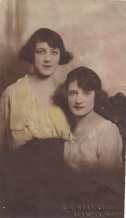In writing my sample of a writing sprint (for this blogging session) it WORKED! I had been ‘resting’ from my creative writing; fiction, scripts, etc., but writing every day, my blog, etc. But after writing a couple of ‘sprints’ I seemed to have kicked aside whatever was holding me back and wrote a short, one act play in less than a week. And returned to an unfinished novel in my true crime series.
If you want extra accountability, start your writing sprint by posting “Starting a 30-minute writing sprint” on one of your social

media sites (Instagram, Twitter, Facebook) with the hashtag #writingsprint.
Before you start, double check one last time that you have everything you need to do your writing sprint. Preparation is critical to a successful sprint.
Once you are ready, start your timer. As soon as you start the timer, start writing and don’t stop until the timer stops. Don’t pause to consider word choice. Don’t stop for a sip of water (or wine). That can wait. Don’t think about what to do next (hopefully, you have planned it out earlier, so just implement your plan). It doesn’t matter what you write as much as that you keep your fingers or hands moving and words going down on the page or screen.
You can always edit your writing later. Remember: “Writing is not a calling; it’s a doing.” (t. sugarek)
Stop only when the timer goes off. Then celebrate your successful sprint (and motivate others) by posting your word count achieved on social media and in any group forums if you are participating in an event.
Finally, record your sprinting session to track your progress.
When to Do a Writing Sprint
There are certain times where writing sprints can be extremely useful.
• When you have writer’s block
• When you only have a limited amount of time to write
• When you want to increase your writing speed
• When you want to reach a specific word count goal b y a specific time
y a specific time
• When you want to break out of editing mode
There is no right way or wrong way to do writing sprints. So you can’t write 500 words in fifteen minutes. So what? Just do your best. Stop over thinking it and just write as fast and furiously as you can. Put words down and see what happens. That blank page isn’t going to fill up by itself.
Did you miss Part I of this post?
~~~~~~~~~~~~~~~~~~~~~~~~~~~~~~~~~~~~~~~~~~~~~~~~~~~~~~~~~~~~~~~~~~~~~~~~~~~~~~~~~~~~~~~~~~~~~~~~~~~~~~~~~
My weekly BLOG features INTERVIEWS with best-selling AUTHORS! August: Veronica Henry, October: Life Coach, shaman, author, Jennifer Monahan, November: Susanne O’Leary, December: Mimi Mathews
To receive my weekly posts sign up for my 
On the home page, enter your email address. Thanks!
BOOKS BY TRISHA SUGAREK
















































